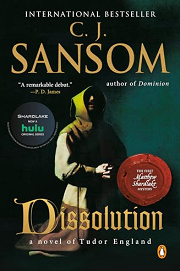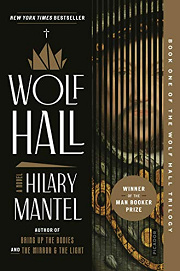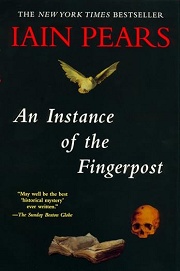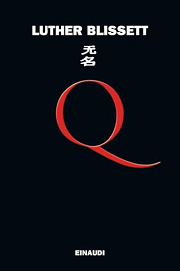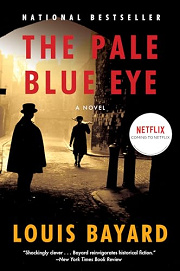Share your thoughts in a quick Shelf Talk!
Dissolution by C. J. Sansom
"In the shadow of Henry VIII’s England, a brilliant yet battle-scarred lawyer is drawn into a murder at a shattered monastery, where politics can be deadlier than blades. Richly atmospheric and compelling, Dissolution launches a mystery as intricate as Tudor intrigue itself."
Have you read this book? Share what you liked (or didn’t), and we’ll use your answers to recommend your next favorite read!
Love Dissolution but not sure what to read next?
These picks are popular with readers who enjoyed this book. Complete a quick Shelf Talk to get recommendations made just for you! Warning: possible spoilers for Dissolution below.
In Dissolution, did you enjoy ...
... Cromwell's ruthless court intrigue driving the investigation?
Wolf Hall by Hilary Mantel
If what gripped you in Dissolution was Shardlake working under Thomas Cromwell’s hard glare—being dispatched to Scarnsea to solve Commissioner Singleton’s murder while navigating the king’s will—then Mantel’s Wolf Hall lets you walk straight into Cromwell’s chambers. You’ll see the same knife-edged maneuvering behind the dissolution policy that set Shardlake in motion, as Cromwell juggles Anne Boleyn, Henry VIII, and enemies like More. It’s the backstage drama to the power that made Scarnsea’s fate inevitable.
... a claustrophobic monastery mystery steeped in period detail?
The Name of the Rose by Umberto Eco
You enjoyed being locked inside Scarnsea’s priory—snow, silence, and secrets—while Shardlake sifted monks’ alibis and peccadillos. The Name of the Rose traps you in another religious house where a scholar-detective hunts a killer amid forbidden texts and theological quarrels. The closed community, coded manuscripts, and ritual routines will scratch the same itch that the Scarnsea chapter-house interrogations and scriptorium hints did in Dissolution.
... a patient, meticulously layered historical investigation where politics warp the truth?
An Instance of the Fingerpost by Iain Pears
If you liked how Dissolution unfolds deliberately—Shardlake and Mark piecing together Singleton’s last movements, revisiting testimonies, and letting small contradictions topple larger lies—Pears’ novel rewards the same patience. Through shifting testimonies around a suspicious death in Restoration Oxford, every account recasts the case the way Cromwell’s agenda kept reframing Scarnsea. The pleasure is in watching careful inquiry pry truth from power.
... Reformation-era struggles over faith, heresy, and power?
Q by Luther Blissett
If the heart of Dissolution for you was its Reformation backdrop—Cromwell’s reforms squeezing Scarnsea, monks torn between conscience and survival—then Q plunges into those same convulsions across Europe. Secret informers, heretical cells, and state agents collide as doctrine becomes a weapon. The moral gray zones that shadowed Shardlake’s interviews with frightened brothers are writ large here, with faith and politics indistinguishable.
... a first-person sleuth picking apart a murder inside a closed institution?
The Pale Blue Eye by Louis Bayard
If you enjoyed riding inside Shardlake’s head—his dry skepticism, legal precision, and uneasy conscience—as he investigated the killing at Scarnsea, Bayard’s The Pale Blue Eye offers a similarly intimate voice. Retired constable Augustus Landor narrates his probe into a cadet’s death at West Point, with Edgar Allan Poe as his unlikely aide. That first-person scrutiny of clues, interviews, and institutional secrets mirrors the way Shardlake needles through priory walls.
Unlock your personalized book recommendations! Just take a quick Shelf Talk for Dissolution by C. J. Sansom. It’s only a few questions and takes less than a minute.
